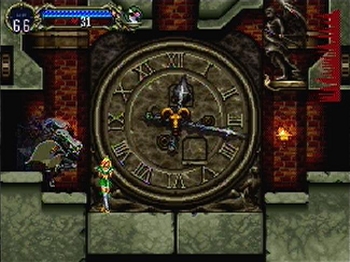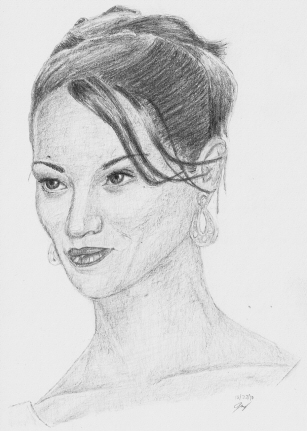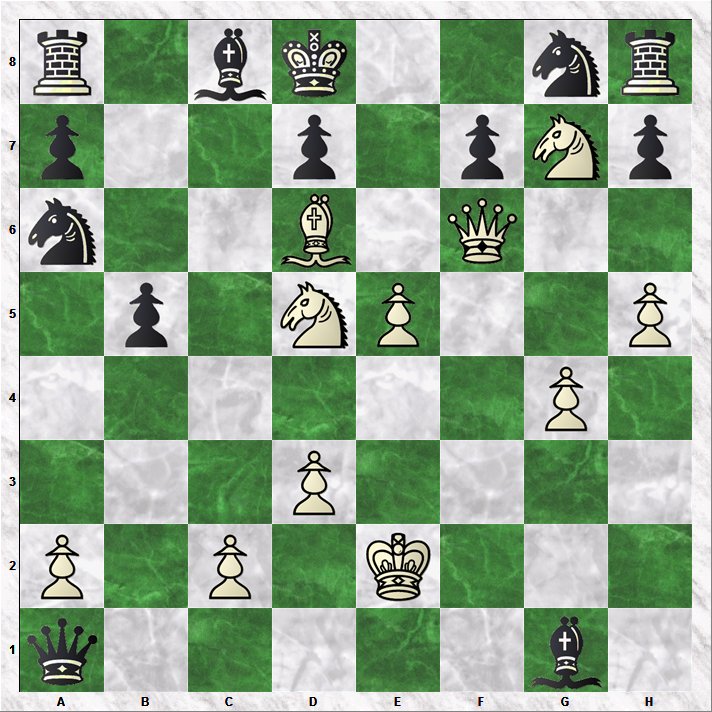|
In Defense of Not Art

This is not art. This is someone struggling with their medium. Back in 2004, I didn't take drawing seriously enough to produce art, and it shows.
By Jay WilsonThrough my ventures as an artist, as a writer, and as an avid admirer of cinema, I’ve observed a chronic misunderstanding of not art. I, myself, don’t particularly care for the pseudo-philosophical nonproductive exercise of defining art, but I do find it disturbing and take offense to the popular oversimplification that art means good and thus, by default, not art is bad. Granted, rarely does anyone articulate this explicit chain of logic with those terms verbatim, but when a scholar, critic, or snobbish elitist declares that something is not art, listen to the benignly intended protests that inevitably arise. The word subjective will likely play a prominent role along the lines of “who are you to judge (what’s good or bad)? It’s all subjective!” which I find the most offensive. Other people will provide heartfelt testimonials on how the work in question touched them in ways no other work has which translates to a subjective response setting the baseline standard with the implication that only something great—only art—could elicit such reaction. Still others will attempt to bring a mathematical logic to the discussion (if X = Art and Y > X then Y = Art too), which when you break it down is the preceding argument expressed in different terms. Now, while I don’t want to try and define art, I will explore one facet of art and set a few parameters. Art functions as an ideal or goal—a kind of dreamlike perfection—that every artists strives towards in their work, and in that respect greatness becomes an inherent quality of art but not the totality of it. And as a natural result, when an individual’s work approaches that elusive and amorphous dreamlike perfection it gains the power to transcend both culture and language to touch, inspire, and unite people in their appreciation. So, to a particular extent, I can understand and grudgingly sympathize (without agreeing) with some sentiments expressed in the above paragraph; however, I make this important distinction: there’s nothing wrong with being not art. Not art does not mean the inverse of art—that’s a false dichotomy, and it’s every bit as absurd as saying “3 ≠ 2, therefore 3 = -2.” The quality of being good or bad operates independently to the state of being not art; therefore something can achieve greatness without ever falling under the definition of art (defeating Hitler in World War II, Neil Armstrong walking on the moon, this flash drive which carries all my important files.) Furthermore, despite what our egos would tell us, our ability to like something operates independently of it being good or bad, and it also operates independently of the item’s status as art. For example, I like the color blue which is neither good nor bad; furthermore, while many artists have used blue to great effect in creating art, the color, itself, is not art. Thus, I don’t feel the need to get up in arms overturning someone else’s not art verdict. 
Art or not—who cares? Castlevania: Symphony of the Night is a great video game because of its responsive controls, wonderful music, detailed sprites, colorful backgrounds, Alucard's godlike powers, but most importantly: it's fun to play.
But I take issue with the almost frivolous compulsion to defend art against the charge of being not art on the grounds of subjectivity alone. First, art is not a sickly child in need of defense. Art transcends time and will outlast all of us because it is greater than any of us. What can you or I or anyone possibly say that the masters have not already said? That art has not already stated for itself? I don’t doubt the passion and surface intentions of anyone who feels compelled to defend art, but I suspect the human ego’s rampant desire to inflate itself fills out the subconscious half of the motivation. The battlefield of words has no real risk and noble is the cause of protecting the good name of the arts thus becoming a crusade with no consequence and only self-serving rewards. No bravery nor wisdom required. However art, itself, will always speak more clearly and more gracefully. Furthermore not art does not threaten art; they have lived in harmony long before us and will continue to live in harmony long after we are gone. Second, subjectivity alone—the notion that art lies in the eye of the beholder which, by logical extension, means anything and everything can be art if perceived as art—is no argument. If anything can be nothing and nothing can be everything—which is implied if not explicitly expressed by this sentiment—then no meaningful conversation can take place. Labels and definitions exist so people can communicate; often a label encompasses an array of definitions. The word car, for example, refers to a type of vehicle of which one can find numerous makes, models, designs, styles and colors. And part of the reason why car has a useful meaning is because there are not cars in the form of telephones, food, water, clothing, rocks, celestial bodies among many other things including trucks, vans, and SUVs which perform a similar function, but are not cars. Think about the pronoun it. I can say, “it is great,” and you have no idea what I’m talking about because, by itself, the word it is meaningless. To use subjectivity as a blanket definition of art is to reduce art to pronoun status, and I find that incredibly uninformed and offensive—more so than a narrow minded overly-exclusive definition of art. It can literally mean anything, and I would like to think my dreams and passions manifested upon the canvass occupy a slighter higher rung on the ladder than my garbage. 
In 2010, I was investing significant time and effort into learning and practicing my craft, and as this render shows, I gained far more control which will (hopefully) allow me bring my dreams to life through my medium.
Art has a meaning, in part, because not art exists. Furthermore, something can be artistic—even demonstrate superior craftsmanship—without being true art. The napkin doodles Jim Lee and Frank Millers throw away will reflect their years of experience and demonstrate a greater understanding of drawing than anything I have ever done. Artists dedicate vast sums of their finite time to their mediums, much of it just to learn, improves, and hone their skills. A musician practices long before he gives recitals, an Olympic athlete trains before winning a medal, and a Broadway production rehearses before performing in front of an audience. And all parties know that that practice gives them a place to experiment, make mistakes, screw around, and just go through the motions if their heart isn’t in it one night—it gives them a much needed place where things don’t matter. And while it is possible practice can yield a remarkable result that ascends its origins to become something more, for the most part practice exists to give us the skill and confidence to achieve perfection when it counts. I love to draw, but I don’t consider myself anything more than an amateur at this point. I’m the first to admit I’ve gone years without producing art because I feel I’m still in the learning phases trying desperately to figure out how to make this medium yield the results I envision. While there are terrible renders in my portfolio that make me cringe, there are others of which I’m quite proud—that I would fiercely defend as being both artistic and well crafted. However, I am the first to admit they are not art. Maybe that makes me a snob or elitist (even in regards to my own work), but art is a word whose meaning I do not take lightly. If I may go off on a tangent, I play both chess and competitive video games (fighting games). And in this realm, there exists an objective standard of greatness called results. A good player wins against a bad player. It’s against this backdrop I have observed a curious phenomena where people’s scale of good and bad is defined purely by their exposure. Thus, a lack of exposure—ignorance—often leads to the subjective high praise of objectively-provable terrible players. In Street Fighter II and Soul Calibur IV, I (an amateur) have a long track record of handily defeating self-proclaimed masters who barely know the game. But those “masters” did not seek out competition, so instead of improving they just skewed the scale to accommodate their lack of skill. In a chess game, one of my friends (who declared himself undefeated) proclaimed me the best player he has ever challenged which says infinitely more about his competition than my skill level. I don’t play enough chess to be good, and my record bears that out. Later, I was not surprised to find out this individual typically plays friends and family who almost never play the game, and the compliment of being the best lost all its meaning. 
22. ...NxQ. 23. Be7#.
A casual game between Grand Masters played between tournament matches yielded one of the most famous and instructive chess games ever. In regards to art, though, I can’t help but wonder if people’s opinions are likewise founded in ignorance—if people thoughtlessly throw the title of art at anything they happen to like without ever seeking out or experiencing what art is capable of the same way non competitive gamers will see skill in a lacking player because they have never gone to a tournament or witnessed high level play. This is why I don’t subscribe to the “everything is subjective” philosophy in its purest forms; if our opinions are equal, it leaves no motivation to look for more. Human history has produced a wealth of great things—both art and not art—more than any person could take in in a lifetime. Thus, why waste precious moments in this world obsessing over the minutia of our own arbitrary personal definitions that, in the end, will die with us? Why not spend the time we do have appreciating things for what they are? Because both art and not art are worthy of our limited time.
—Jay Wilson |
|
“I don’t think they’re art either, videogames. The thing is, art is something that radiates the artist, the person who creates that piece of art. If one hundred people walk by and a single person is captivated by whatever that piece radiates, it’s art. But videogames aren’t trying to capture one person. A videogame should make sure that all one hundred people that play that game should enjoy the service provided by that videogame. It’s something of a service. It’s not art. But I guess the way of providing service with that videogame is an artistic style, a form of art.” —Hideo Kojima
|
|
|
